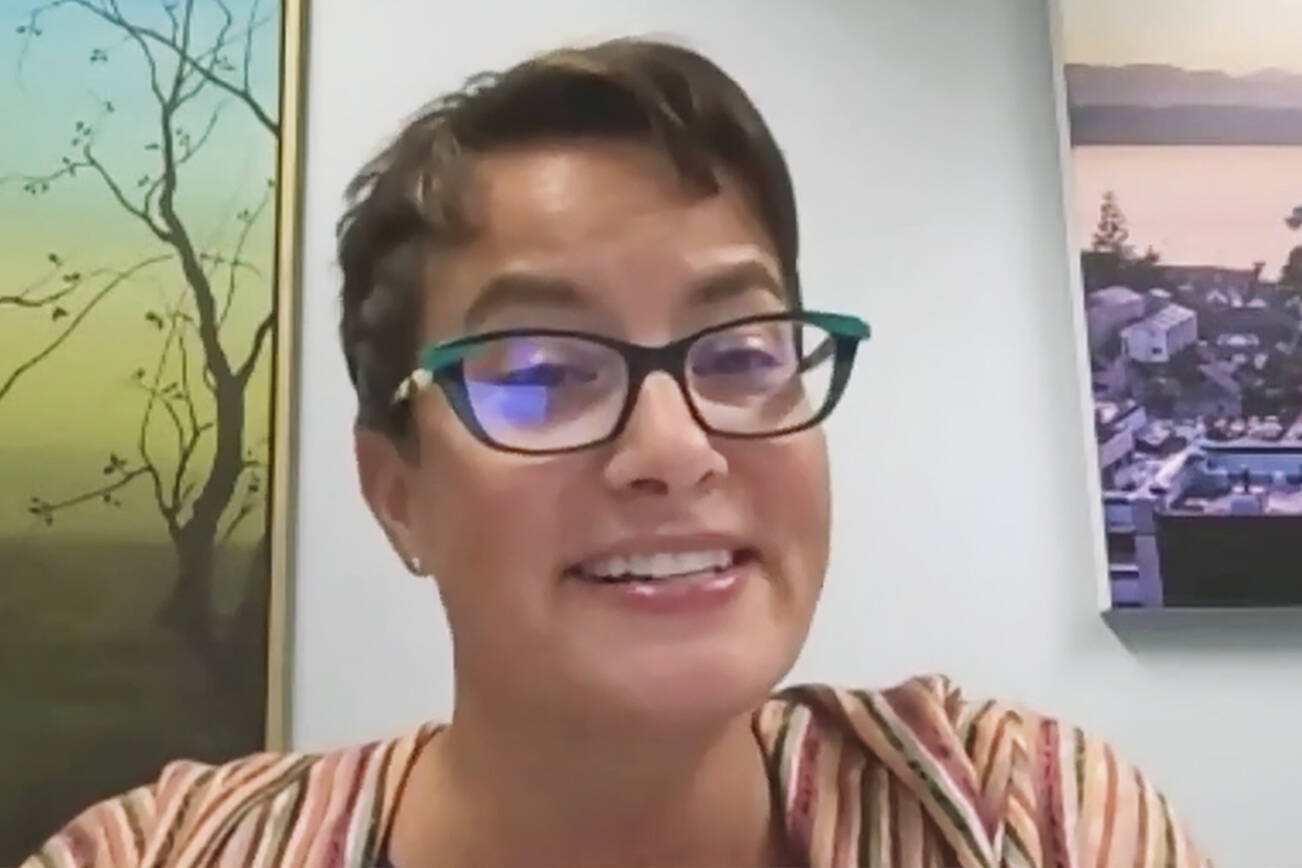By The Herald Editorial Board
Everett residents can expect some new faces among city leadership next year; of the five city council races on the Nov. 2 ballot, at least three new council members will not have served in office before.
There is at least one familiar face, however, whom voters should readily return to office: Everett Mayor Cassie Franklin.
Franklin, seeking a second four-year term, after four years on the city council, has demonstrated as mayor her skill, responsiveness and leadership in confronting the challenges she knew were ahead four years ago and a pandemic that no one anticipated.
Her performance in that first term is its own endorsement.
Franklin is challenged on the ballot by Steve Oss, who has been an Everett Transit employee for nearly 25 years and has served 16 years as its union president. A life-long Everett resident and military veteran, Oss previously owned a small business and was selected in 2019 as the Everett Volunteers of America’s volunteer of the year.
Oss did respond to the editorial board’s request to participate in a joint interview but did not attend the scheduled online meeting.
In addition to her terms on the council and as mayor, Franklin served prominently in the city’s nonprofit sector as chief executive of Cocoon House, which provides shelter and supportive services for homeless and at-risk youths. Franklin was first hired to the social service agency in 2005, left in 2009, and was rehired as its chief executive officer in 2011. Helping to turn around a financially struggling agency, Franklin led Cocoon House until starting her work as mayor.
Franklin, of course, was not the only local official challenged by the pandemic, but she was among the first to act, imposing a “Stay Home, Stay Healthy” directive in March 2020 in the city that had the nation’s first recorded case of covid-19. The city’s directive, like the statewide directive that followed days later, was met with mixed support but can be credited with limiting the disease’s spread in the pandemic’s earliest days.
The pandemic — and the city response regarding public health and its economic effects — has demanded much attention from Franklin, the council and other city officials during the last 19 months, requiring it to shift city staff to work remotely, assure necessary protective equipment for the city’s public safety workers and a coordinated response with state and county public health and other agencies. As the pandemic continued, Franklin oversaw city efforts to help city businesses and nonprofits, including distribution of federal aid and guidance on reopening businesses.
For the two years prior to the pandemic’s start and during the pandemic, the city has seen progress on many of the priorities Franklin announced upon taking office, including work to address homelessness, affordable housing, public safety, equity and diversity issues and a persistent structural budget deficit that confronted the city prior to her election.
Everett, as with other communities throughout the county and the state, isn’t close to resolving homelessness, but it has begun to employ resources and successful strategies, including social workers embedded with police patrols, diversion programs and pallet shelters, which provide affordable and flexible short-term shelter that allows the homeless to begin the path toward permanent solutions.
That multi-faceted approach is working, Franklin said in an interview. “We just need more of it.”
On the overall availability of housing, Franklin said she has worked to persuade the council and residents alike of the need for greater efforts to encourage more construction and to increase density in the city. Assuring a greater stock of housing in Everett will meet the goal of affordability that will allow city employees, teachers, hospital staff and other professionals to live in the city where they work.
The most daunting challenge of the last four years and her next term, however, remains how the city balances the services it provides against the tax and other revenue that is available. Everett is one of the only cities in Snohomish County to provide extensive agencies and programs, including its own transit system, two libraries, a senior center, an animal shelter and fire and police departments. At the same time, the city’s median household income is the lowest among the county’s major cities.
Franklin has led efforts to make cuts that pared back nonessential services and programs — and even services that some see as essential — that the city could no longer afford within existing revenue. And the pandemic forced even deeper cuts than may have been planned. But she has worked to assure programs could transition to new partners rather than simply be eliminated, notably the eventual transfer of management of the Carl Gipson Senior Center to the Volunteers of America.
What remains next year are efforts with the council to consider requests before voters to consider moving the city’s fire department to a regional fire authority and consideration of lifting the lid on the city’s share of the property tax.
The final decision rests as it should, Franklin said, with the voters, but city residents will need to decide what services the city should provide and what they are willing to pay in taxes.
Franklin, in her four years as mayor, has had to make unpopular — but necessary — decisions to prepare and move Everett forward. Voters should reward that vision and grit with a second term.
Talk to us
> Give us your news tips.
> Send us a letter to the editor.
> More Herald contact information.

























